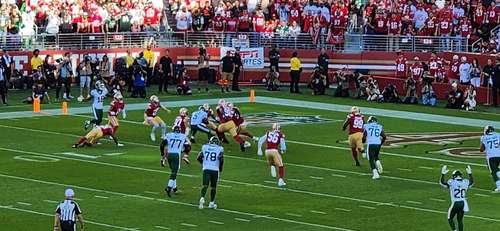Chess, a game that spans continents and centuries, finds itself in the limelight not just for the strategies on the board, but for its off-board controversies. The latest buzz? None other than Magnus Carlsen, the top-ranked chess player, choosing to bow out of the World Rapid and Blitz Chess Championship. But why, you ask? It wasn’t about the game itself, but something as elementary as a pair of jeans. Yes, you heard that right! The champion chess player in the world decided to withdraw over a dress code dispute. Who would have thought clothing could checkmate a chess champion?
The Dress Code Dilemma
Every sport has its rules, and chess is no exception. While we might think of chess rules as pertaining to how the pieces move or strategies to win, there’s more to it. The chess world tournament has its own set of standards, and one of them is dress code regulations.
Carlsen, known not only for his genius moves but also for his casual demeanor, was asked to change his jeans by the officials. Imagine being told to change what you're wearing when you’re mentally preparing for a high-stakes game! It’s like telling a sprinter to swap their shoes moments before the race. The request might have seemed trivial to some, but for Carlsen, it was a breach of his autonomy.
In the end, Carlsen magnus chose not to comply and withdrew, sparking debates about the relevance and enforcement of dress codes in chess. Was this about respect for tradition, or was it simply an outdated rule that needs revisiting?
Historical Context and Current Relevance
Chess has always been a game steeped in tradition. From the grandeur of the pieces to the solemnity of the matches, there's an aura of respect and decorum. Historically, formal attire was expected, as chess was often played in high society circles. But times have changed, and so have attitudes.
The chess champion in world, Magnus Carlsen, represents a new era of players who value comfort and personal expression. But does this mean the rules should flex to accommodate modern sensibilities? Or should the old guard stand firm?
In recent years, the chess championship has seen a younger, more diverse audience. With it comes a shift in what’s deemed acceptable. The world is becoming more casual, and perhaps the chess world should, too. Or should it? This incident with Carlsen has certainly lit the fuse on these discussions.
Magnus Carlsen: The Man Behind the Moves
When we think of Carlsen magnus, we think of a prodigy who conquered the chess world at a young age. Unlike many, he’s not just a chess player; he’s a phenomenon. His approach to the game is as much about intuition as it is about calculation. And perhaps, his approach to life follows the same pattern.
Carlsen’s decision to withdraw can be seen as a move of principle, akin to sacrificing a knight for a greater strategic advantage. It’s not just about the game; it’s about what he stands for. To Magnus, playing in jeans might be as important as a pawn structure. It’s who he is.
His bold stance might seem like a gambit, but isn't that what great champions do? They challenge the status quo, push the boundaries, and make us question the norms.
The Chess World Reacts
The chess community is abuzz with opinions. Some are in full support of Carlsen, viewing his withdrawal as a necessary catalyst for change. "Magnus is a pioneer," one fan noted. "He’s showing that chess doesn’t have to be stuck in the past." Others, however, argue that he should have respected the rules set forth by the championship committee.
As with any controversy, there are layers to peel back. Is this about personal freedom, or is it about maintaining a standard? Could both coexist?
The chess championship organizers now face a conundrum. Do they adjust the rules to cater to new-age players, or do they uphold the traditions that have defined chess for centuries? The Carlsen incident might just be the pawn that pushes this debate forward.
Impact on the Chess Championship
Carlsen’s absence from the tournament has left a noticeable void. Fans who came to see the chess champion in action were left disappointed. The tournament itself might have lost some of its luster without its star player.
But more importantly, this incident has cast a spotlight on chess game rules beyond the board. It’s opened up conversations about what it means to be a player in today’s world. Should the focus be solely on the player’s skill, or do appearances matter just as much?
In the aftermath, the chess world is left to ponder. Will this be a turning point, or just a blip in the history of the sport? Only time will tell.
Looking Forward: The Future of Chess and Dress Codes
As we move forward, the question remains: Will the dress code in chess evolve? Or will tradition hold its ground? Carlsen’s stand has ignited a conversation that could very well lead to changes in how we view and regulate the sport.
For the fans and players alike, this controversy is more than just about clothing. It’s about identity, respect, and the evolution of a game that has captivated millions. It’s about finding a balance between honoring the past and embracing the future.
In the coming years, we might see a shift in the chess world tournament’s regulations. Or we might not. But one thing’s for sure, Magnus Carlsen has made his move, and the chess world is watching.




